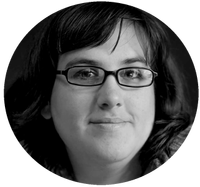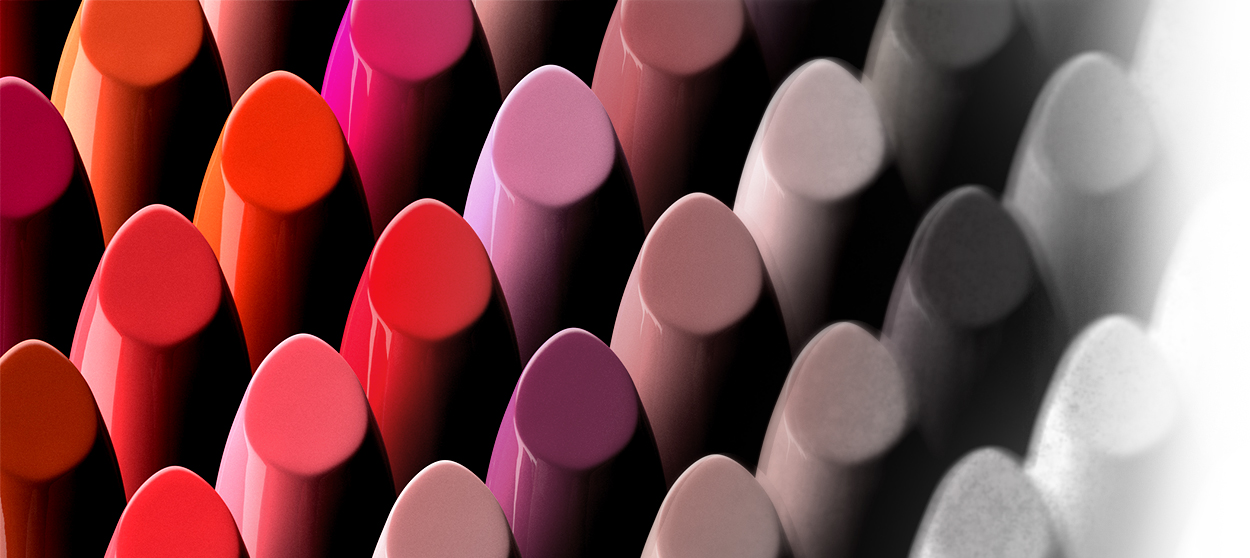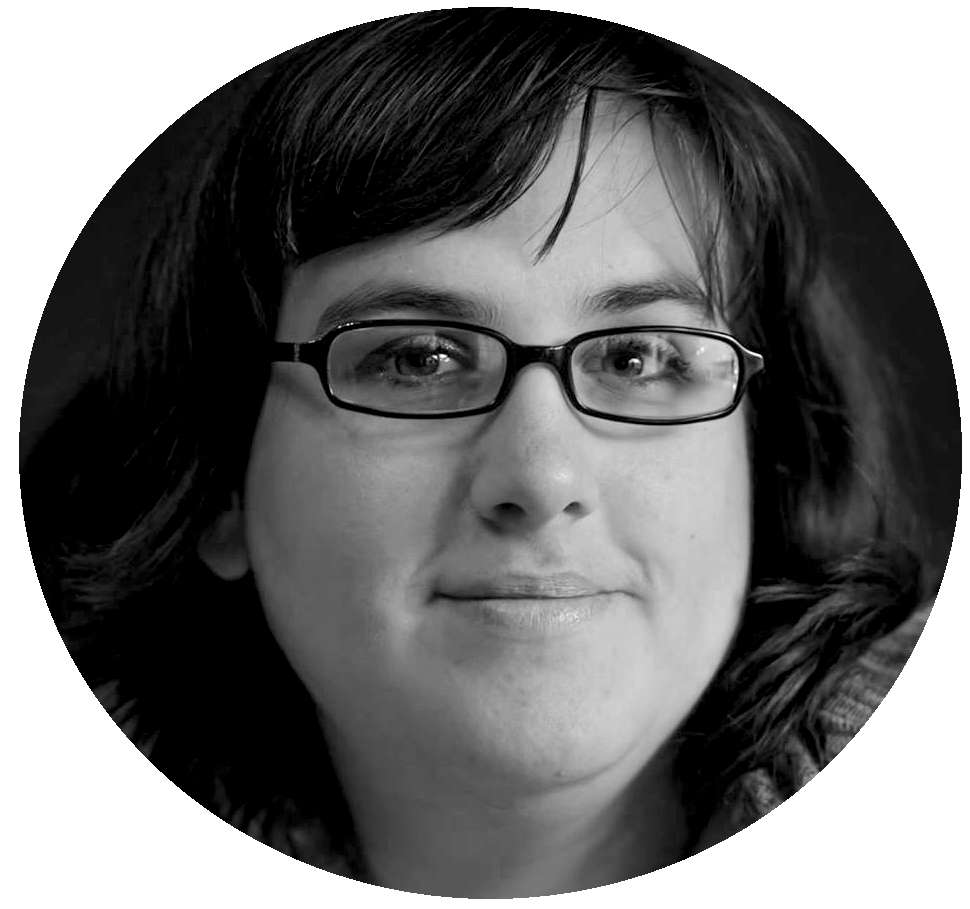The joy of having a bare face: How ditching makeup set me free
This is what happened when I stopped trying to be aesthetically pleasing at all times


A free daily email with the biggest news stories of the day – and the best features from TheWeek.com
You are now subscribed
Your newsletter sign-up was successful
I first learned to build my armor at my grandmother's vanity. I was in awe of how her lipsticks and blushes and her delicate pots of eyeliner turned an ordinary collection of features into a mask of rich, cat-eyed glamor, pastel delicacy, and haughty, high-cheekboned elegance. I wanted to be anything than what I was: a fat girl mocked for her loud, burdensome hips and the drab tent-dresses that couldn't conceal them. Even as a child, I knew that makeup wasn't just a set of potions and paints to make one look "pretty"; it was a very particular witchery, with the power to turn the fat girl into the girl with the bright green eyes, the pert, plump mouth. The girl with long eyelashes. The girl with "such a pretty face."
Every fat woman hears this phrase, from friends and loved ones, from doctors and teachers and, at least once, from some stranger in the canned goods aisle or the subway. They say it with exasperation, or as inspiration ("you have such a pretty face, you could really find a man, find a job, write that book, and achieve enlightenment, if you just lost the weight"). They say it to try and console you ("oh, honey, it's his loss for not asking you out or hiring you or inviting you on that spirit quest, because you have such a pretty face"). It's the platonic ideal of a backhanded compliment ("well, you're fat, which is terrible but at least part of you is a proper woman"). It's such a common refrain in a fat woman's life that sociologist Marica Millman, who wrote one of the first seminal studies of gender and size discrimination back in 1980, two years before I was born, titled that book, Such a Pretty Face: Being Fat in America. And in that book, she argued that fat bodies in and of themselves aren't problematic, it's the attitudes about fat bodies — that they are inherently lazy and unhealthy, laughably ugly, and unworthy of love — that anchor us, turning our happiest, most fulfilled selves into the phantoms of light that flicker across the water's surface.
For years, I haunted the bottom of the ocean: I binged and purged, ran on the treadmill until my hips ached. I took pills that turned my pulse into a piston. I did everything, anything, to force my body into a perfect 36" 24" 36" (or even a 38" 26" 38"). My body fought me — as everything, anything, that wants to live, will thrash and fight inside a snare-trap — it remained obstinately, terribly fat. I clung to my pretty face like a ballast against my heavy thighs and belly, against buttocks that seemed to roll behind me with every step like bumbling helpmates trailing a wicked queen. Throughout my teen years, my 20s, and part of my 30s, I'd spend the hours before school or work — or before going to the grocery store or hitting the gym — engaged in a strategy session before the mirror. Depending on where I was going, I could be gold sunshine again, or a smoky-eyed queen of night. I'd channel the grandeur of Old Hollywood, a wine-dark mouth and feathery eyelashes, and even thin women were in awe of me — of my technique, at least.
The Week
Escape your echo chamber. Get the facts behind the news, plus analysis from multiple perspectives.

Sign up for The Week's Free Newsletters
From our morning news briefing to a weekly Good News Newsletter, get the best of The Week delivered directly to your inbox.
From our morning news briefing to a weekly Good News Newsletter, get the best of The Week delivered directly to your inbox.
Knowing how to blend my eyeshadow just-so and having a favorite blush to recommend connected me to a feminine normalcy that my body would not otherwise allow. The fashion blogs my friends read and shared might've taunted me with swing-dresses and leather jackets that would never, ever exist in my size, but I could at least master the makeup tutorials. The few plus-sized models I saw were heavily made-up, stylized within an inch of their lives, never allowed to be "natural beauties." Makeup made me feel like I'd won a first runner-up trophy made of a beautiful brass that, in a certain light, with a certain polish, could maybe pass for gold. Over the years, I spent hundreds of dollars on makeup and brushes and cleansers, and hours upon hours learning to maximize my incipient prettiness — even though the cute guy never asked for my number, I never got a call-back for that dream job, and teenagers still snickered and whooped at me when I walked down the street.
When I was in my early 30s, I stopped the crash diets because I was tired of being sick, and sick of constantly waiting for my life to begin once I finally lost the same 75 pounds I'd already lost, and gained again, and lost again, and gained again so many times. On my 31st birthday, a friend gave me a book of Peter Paul Rubens' classic nudes — women with bodies like mine, whose fatness was gorgeously overripe, not ugly or burdensome. Their arms were thick, and their bellies sagged; still, they remained gloriously fresh-faced, untouched by anything but their own inner, innate glow. Then I found the photographer Substantia Jones and her Adipositivity Project, which featured bodies like mine, sumptuous and possessed of a natural glamor: The fluid lines of breasts and hips, upper arms, and soft backs held all the grace and dignity I thought I needed makeup to achieve.
I knew, in a subterranean way, that my pretty face was never just a pretty face: Adorning myself in matte lip-gloss, liquid eyeliner, and cream foundation was performative, a way of signifying that I understood what was expected of me as a woman — to be aesthetically pleasing at all times — and if I couldn't redeem myself from the neck down, I could at least put some effort into my face. I envied thinner women who weren't trapped in the hamster wheel of constantly normalizing themselves, women who could just zip off on an errand or take the dog for a walk on a whim, without having to spend 30 minutes frowning into a mirror because their eyeliner wings didn't match up.
Then, one day, I was sick with a cold and struggling to get an old, slightly tacky foundation to smooth over evenly — to the point that I was going to be late to the doctor's office. I realized that I didn't have to envy those thinner women, who could afford to be red-nosed and bleary when they didn't feel well. Surely, I didn't have to be runway ready (or the fat girl approximate to it) when I was sneezing so hard that I saw stars. I slathered my cheeks, forehead, and chin in cold cream. For the first time in decades, I went out sans foundation and blush.
A free daily email with the biggest news stories of the day – and the best features from TheWeek.com
Throughout the day, I'd find myself absently touching my face — which I hadn't done in years, so afraid of disrupting my carefully-curated prettiness that I never knew how soft my skin was. Soon, I started leaving for work with nude cheeks, which became going to the store without lipstick. I felt a bit dangerous at first, like I was a criminal with a briefcase full of diamonds hidden under her long coat. But the diamonds were my time: time to sleep for an extra hour every morning, to have my keys in hand mere minutes after I decided to go write at the coffee shop, to walk the dog before work. My rebellion grew in increments: I stopped wearing eyeshadow for a week, and the next week, I gave up eyeliner. I started hating the gloopy heft of mascara (especially on hot days), so I tossed my tubes for good. I caught glimpses of myself in windows and marveled at how different I looked, before I realized that I didn't look different — I looked like myself.
Once I got over the shock of seeing myself utterly unvarnished, I started to appreciate my features exactly as they are. I like the shape and color of my eyes. There's an inherent playfulness in my lips, the way they tilt upward, ever so slightly, when I'm deep in thought. Sure, my skin catches an occasional zit, but so does almost everyone else's. I don't have to be unblemished anymore. Strangers no longer ask me how I got my eyeliner wings so even; sometimes, they even cut a side-eye, no doubt dismissing me as some slovenly fat woman who couldn't bother to "put herself together." But petty cruelties aside, the world has remained on its axis.
I cared far too deeply, for far too long, about people's approval — when all I'd ever be to them was a large body that needed to be compensated for. I don't owe them "such a pretty face." I owe myself the freedom to rub my eyes when I'm tired. I owe myself the company of people who care about me, exactly as I am — softly jiggly arms and stubborn pimples, wide hips and thin eyelashes, double-chins and pale mouth. I owe myself extra sleep and dog walks, the freedom to get up and go. My face isn't an apology for my body. It is a topography of long-healed (and totally worth it) sunburn and hard laughter. Beauty is a state of self-acceptance even the most backhanded compliment can't touch.
Laura Bogart is a featured writer for Salon and a regular contributor to DAME magazine. Her work has appeared in The Atlantic, CityLab, The Guardian, SPIN, Complex, IndieWire, GOOD, and Refinery29, among other publications. Her first novel, Don't You Know That I Love You?, is forthcoming from Dzanc.
